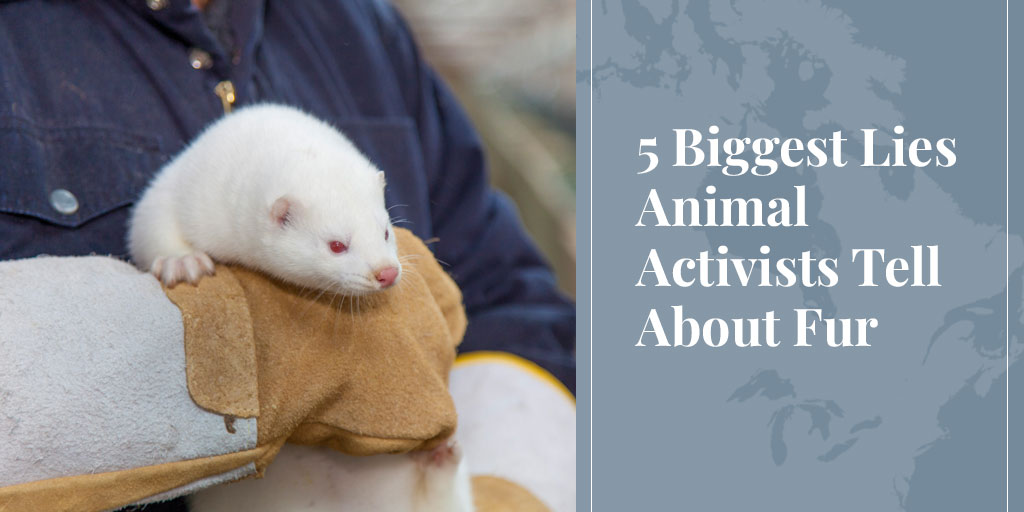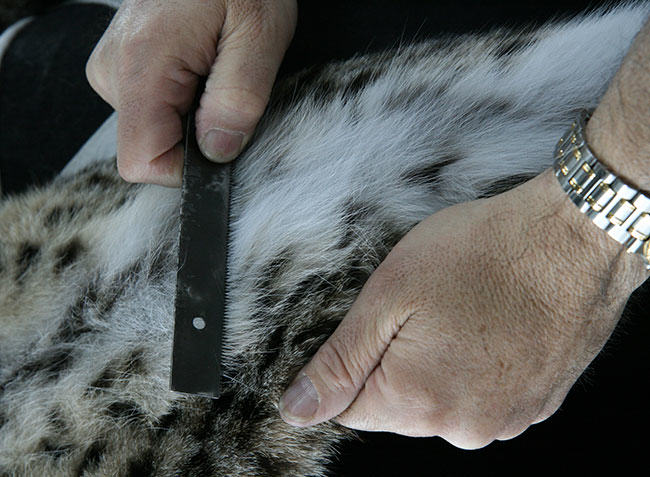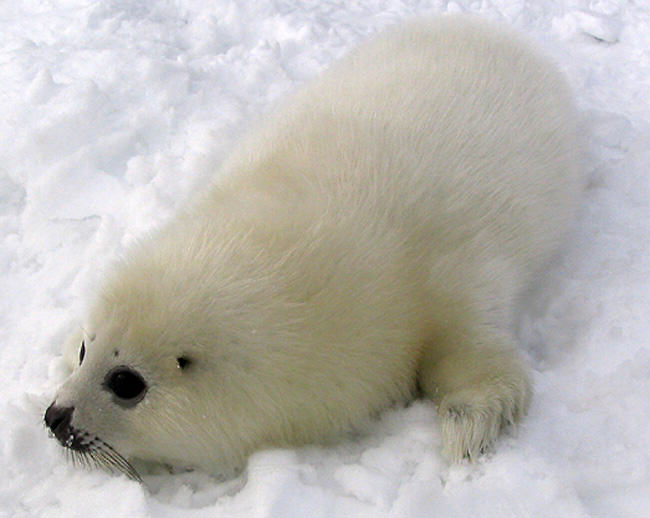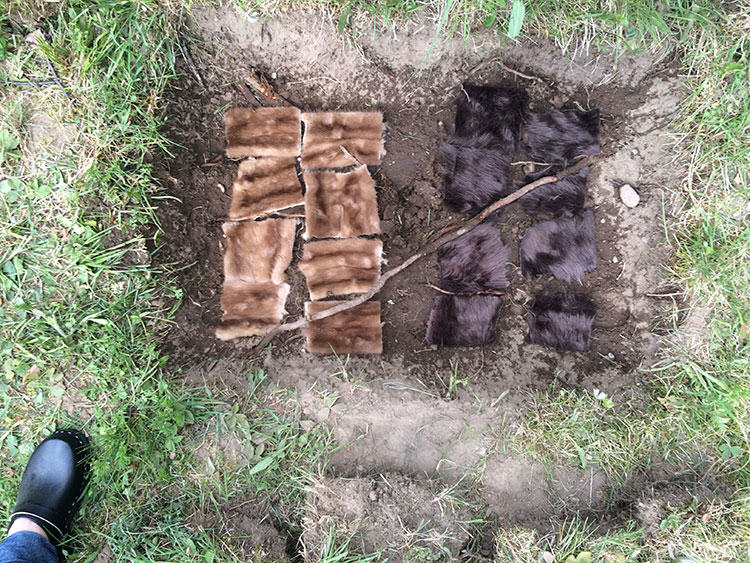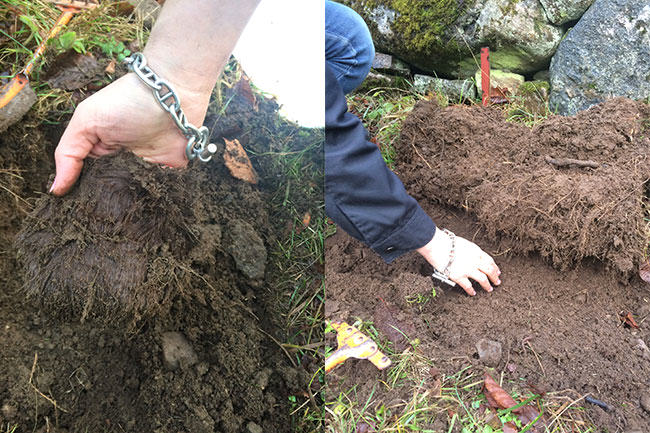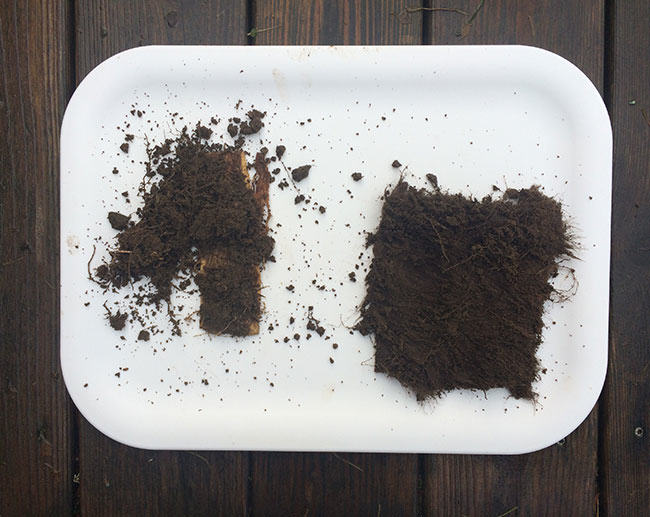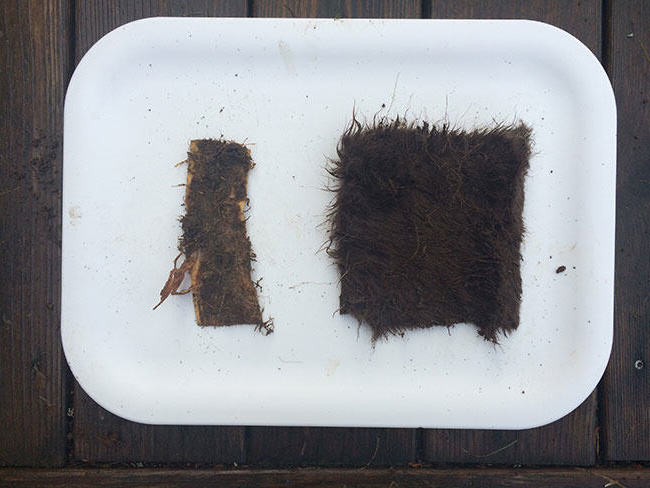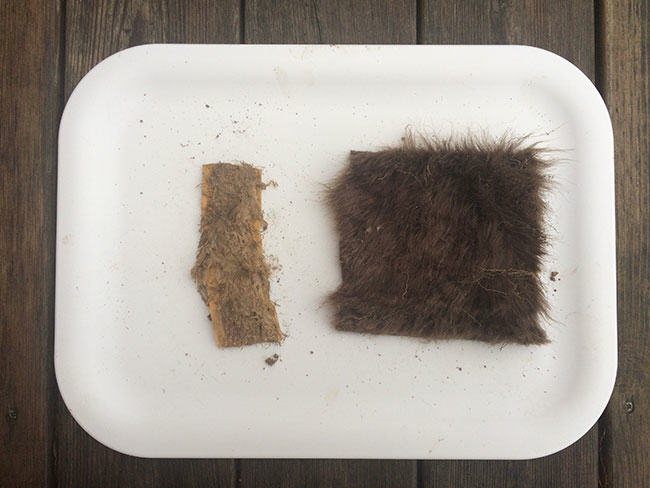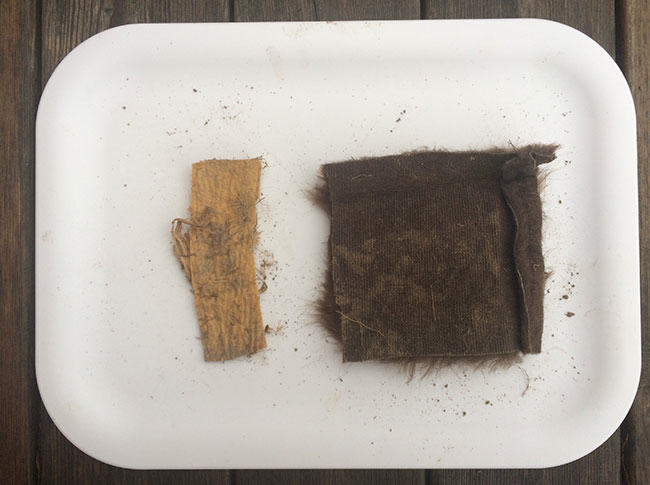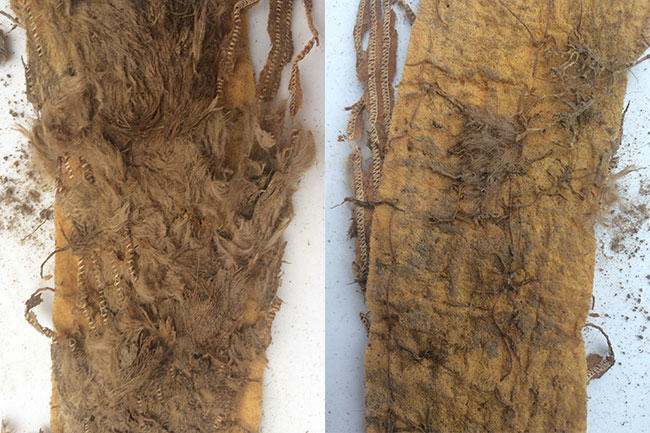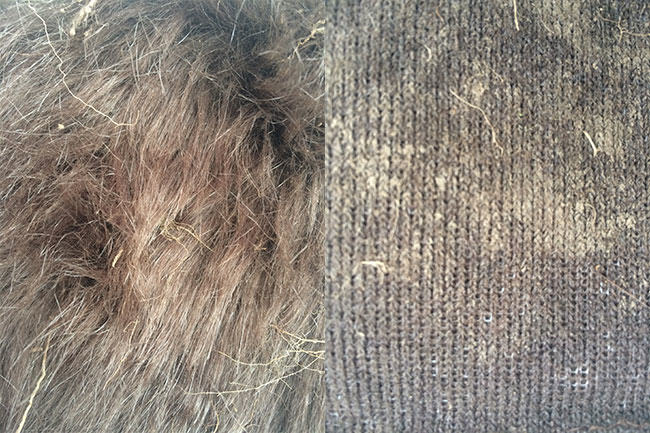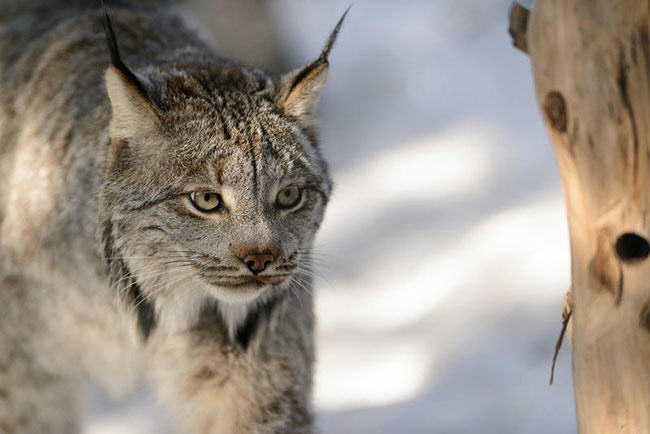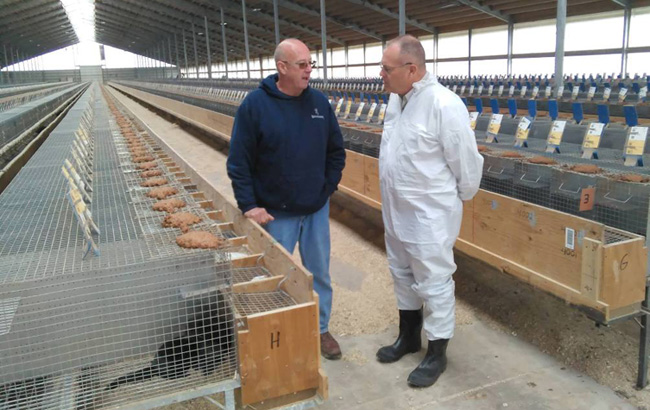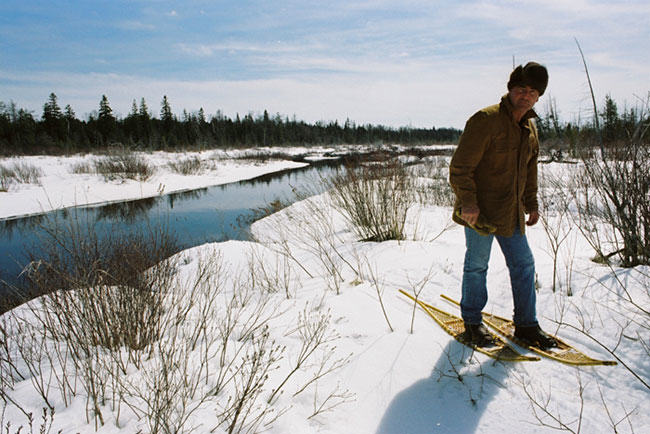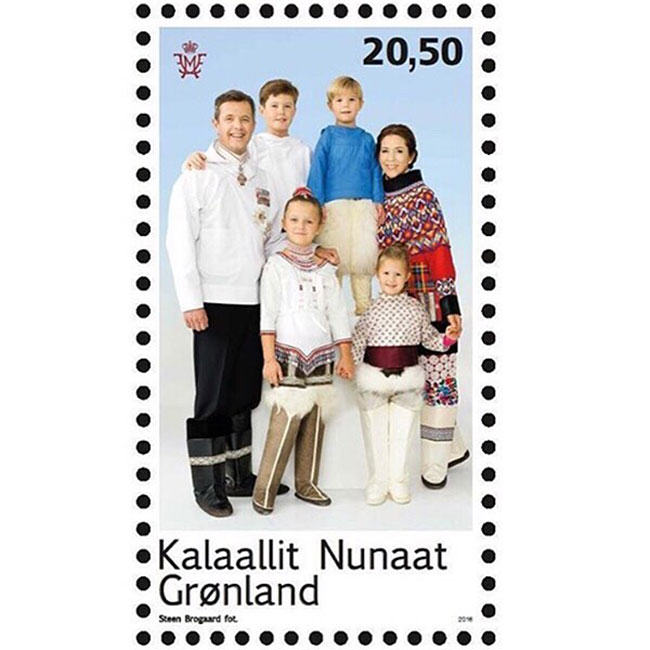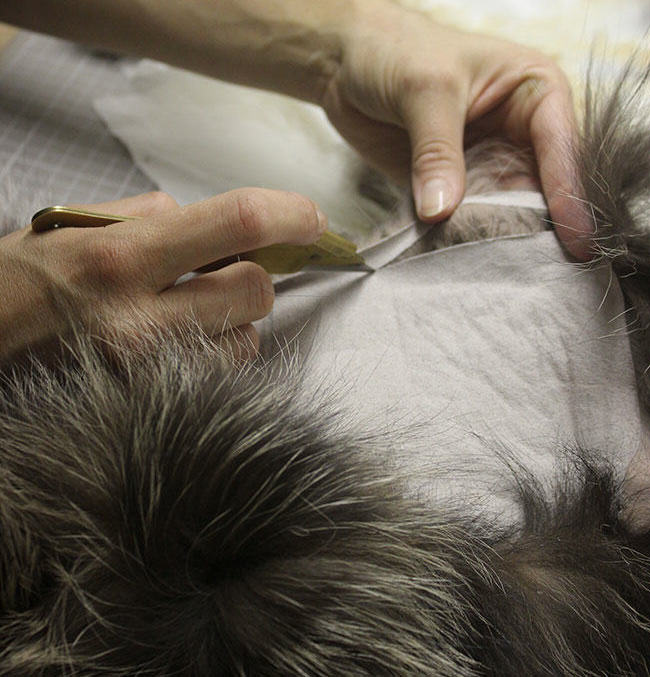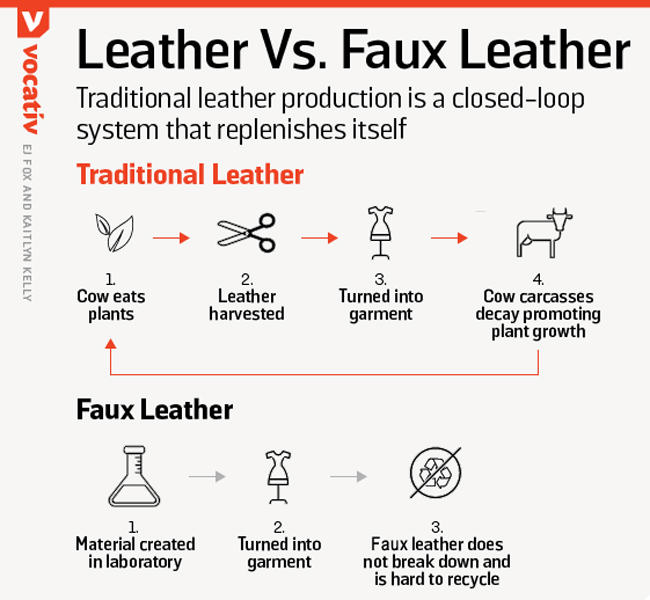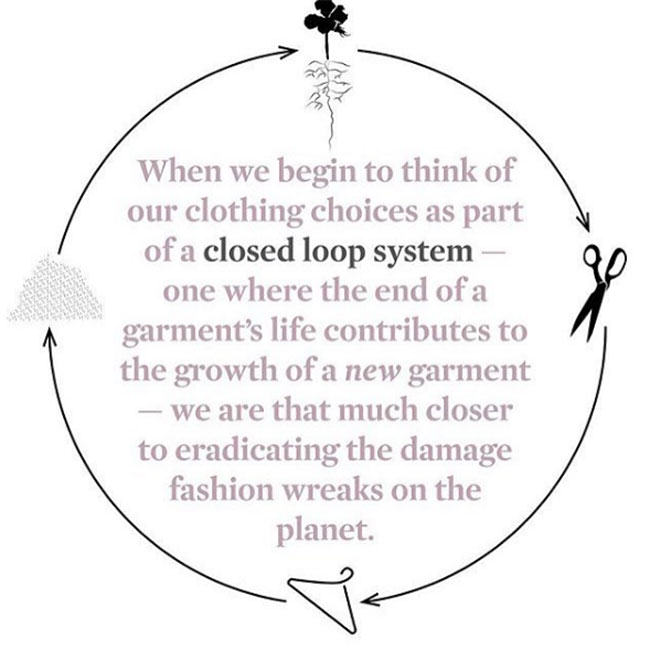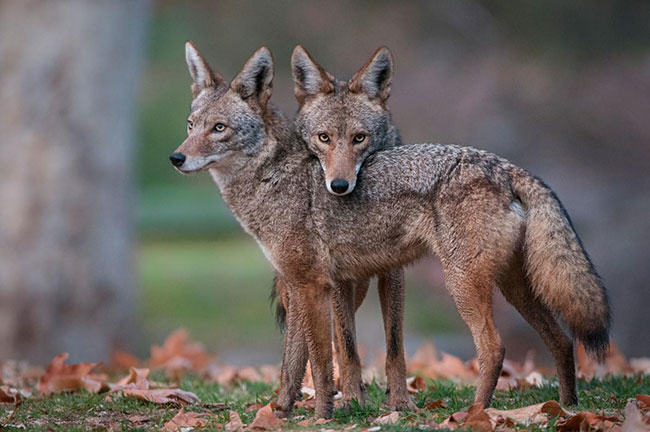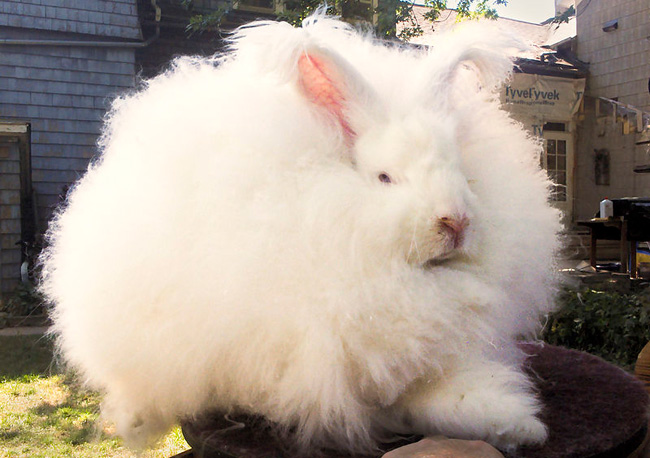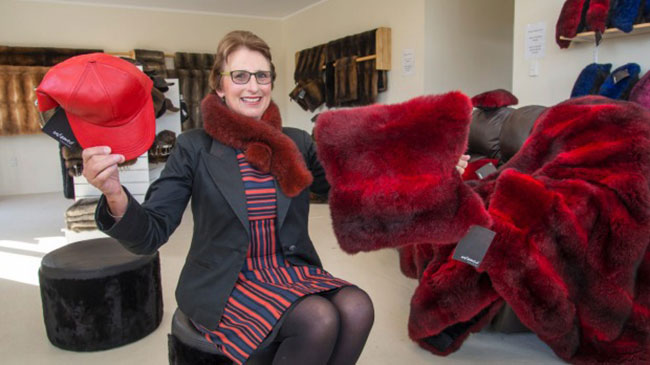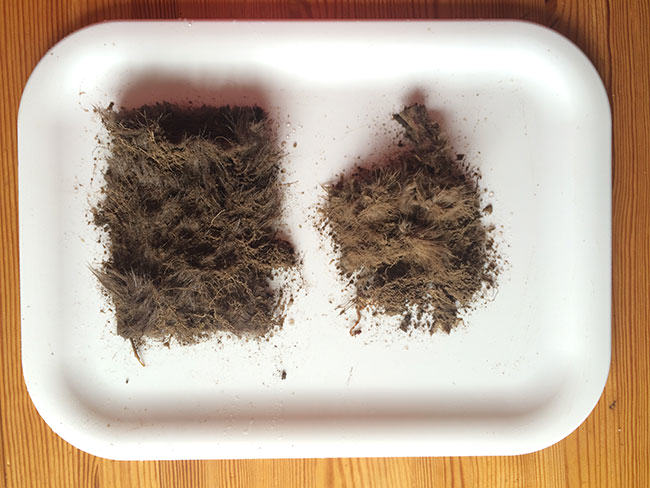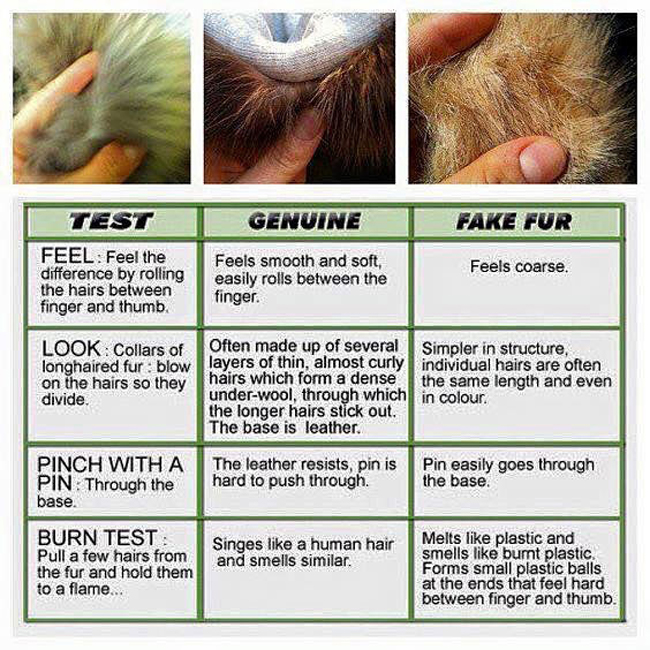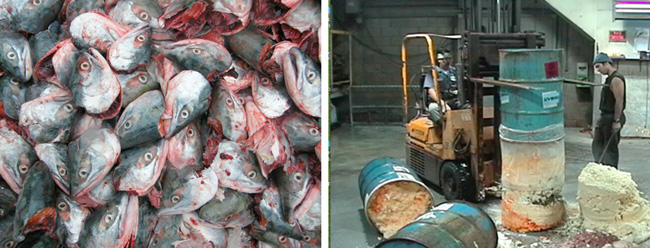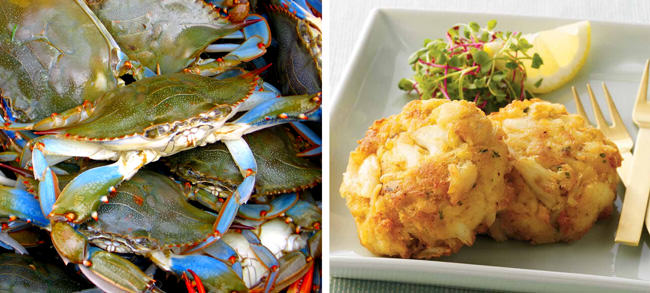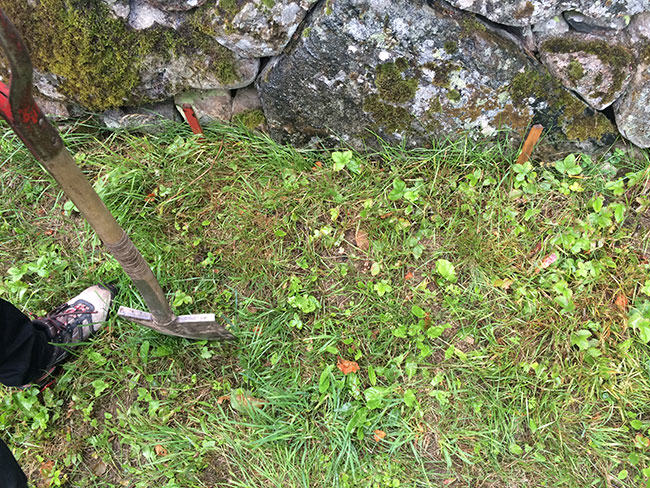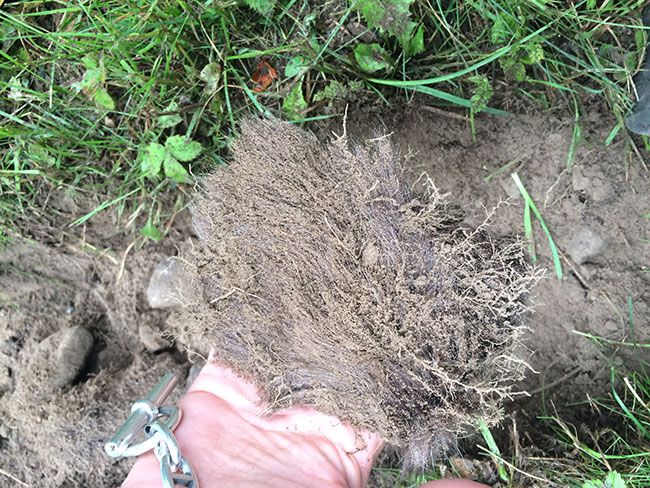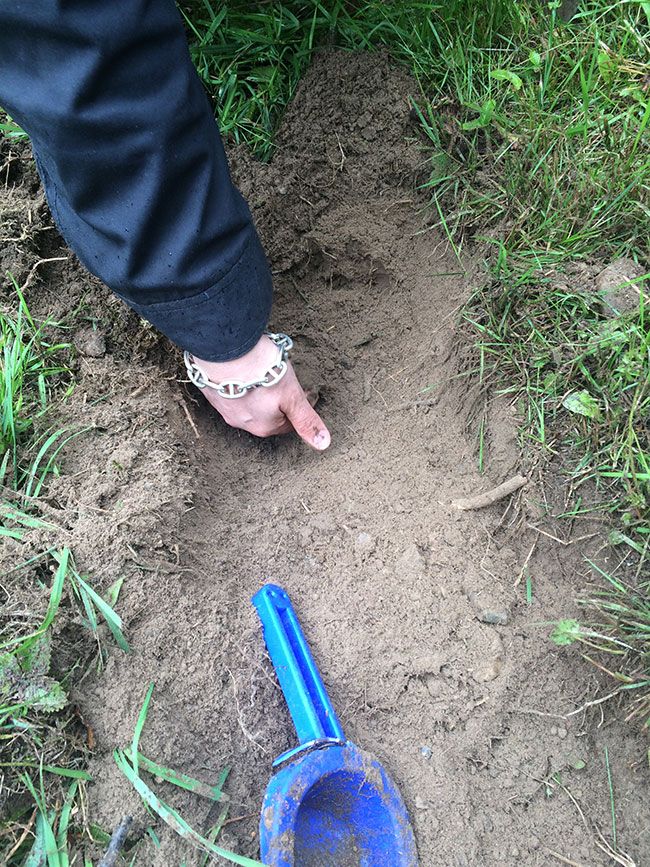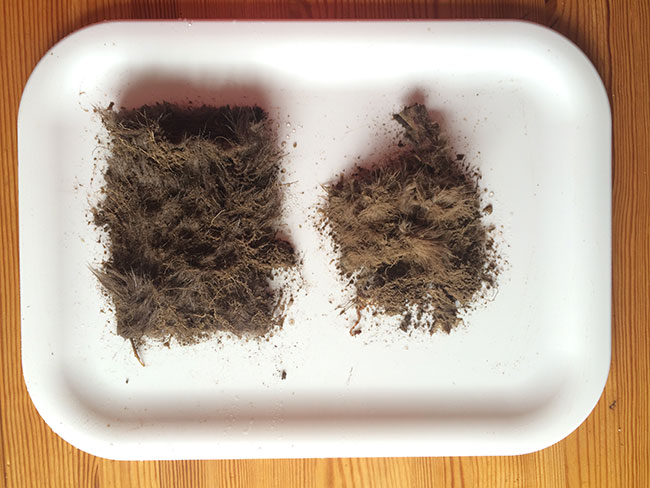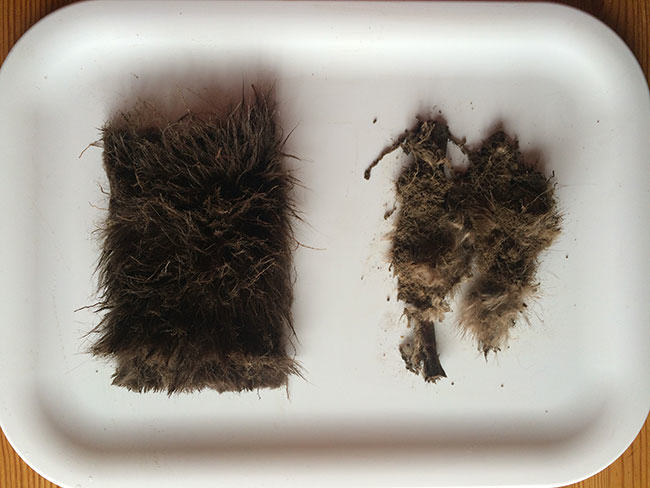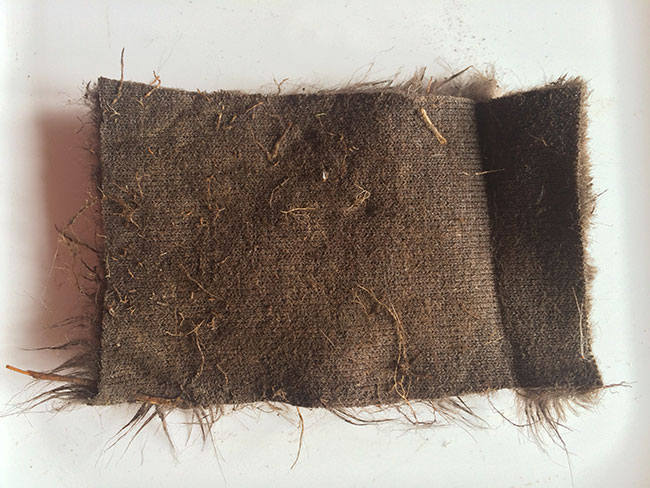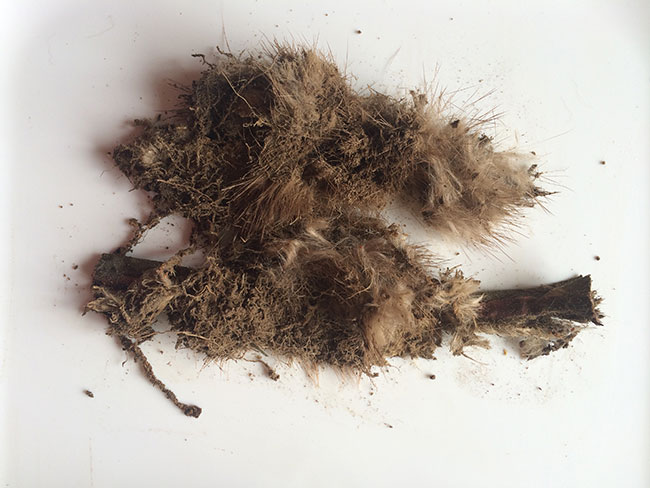Eating Seal Meat: Vancouver Chef Puts Seal on Menu
by Truth About Fur, voice of the North American fur tradeEating seal meat is not something many of us have tried. It’s not a regular feature on restaurant menus, nor…
Read More
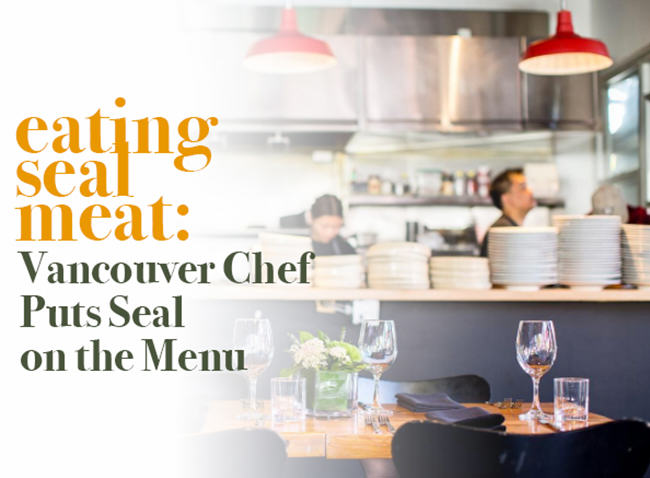
Eating seal meat is not something many of us have tried. It's not a regular feature on restaurant menus, nor is it abundant in grocery stores. Vancouver restaurant Edible Canada made headlines in January when it announced that its menu for the restaurant festival Dine Out Vancouver was going to feature seal meat.
The two dishes, a pasta dish featuring pappardelle with seal mince and a starter of seal loin served rare, caught the attention of media and culinary enthusiasts, but where there are seals, there are activists. Not only did protesters turn up outside the restaurant, they also went on a cyber attack, downgrading the restaurant’s reviews on Facebook by posting hundreds of one-star reviews (since reversed, to an extent, thanks to our loyal followers; see below).
We had a chat with Edible Canada's executive chef, Eric Pateman, described as “one of the leading ambassadors of Canadian cuisine”, about eating seal meat, protesters, and Canadian cuisine.
Truth About Fur: You knew there was going to be some backlash, so why did you decide to go ahead and put seal on the menu?
Eric Pateman: It was the right thing to do. Part of what we do as a business is define Canadian food culture and seal has such an important historical as well as present-day context to it. By not doing it, we would have been doing a disservice to part of what we do as a business, which is educating and informing people on what it is that makes Canada so unique.
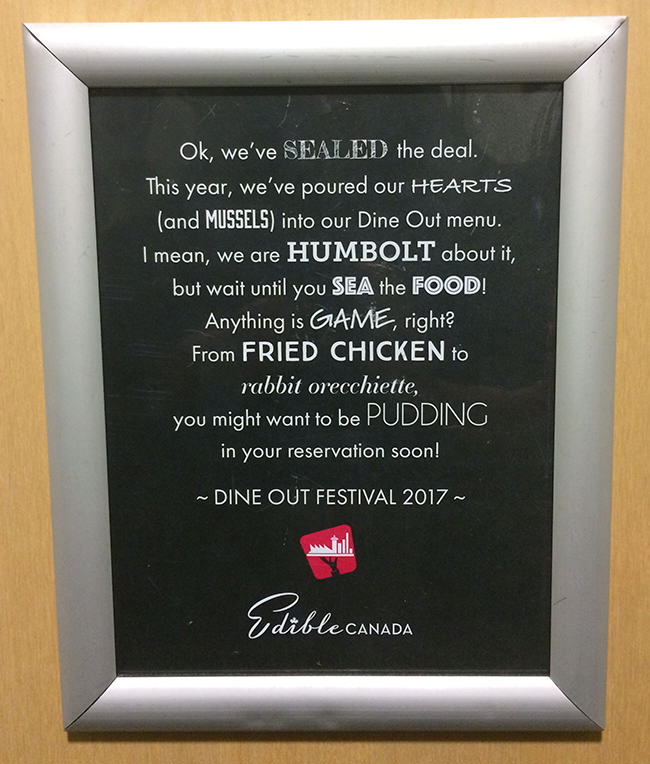
TAF: Did you have any plans in place to deal with the activists, or did you just deal with it as it happened?
EP: We definitely had had some conversations about what some of the potential backlashes could be, but we never anticipated the impact on social media that we saw. We expected some protesters, etc. ... The online impact was far more significant than we expected, but the in-person protests were less than we anticipated.
TAF: Well it is January, people don’t want to go outside, and it is much easier to criticize people anonymously from your computer.
EP: And most of the online attacks were international.
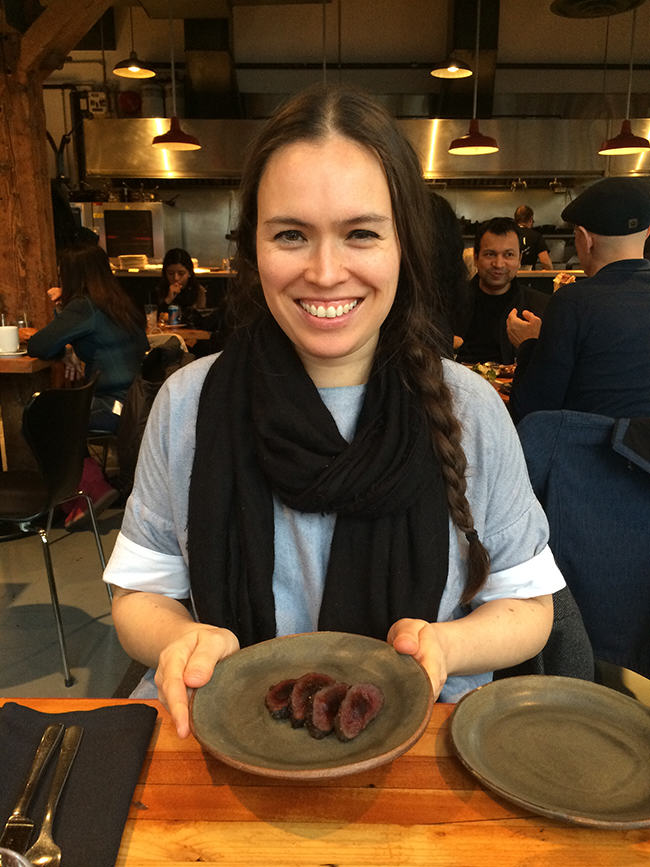
TAF: You posted on Facebook that the response to the seal meat was quite good. Can you talk about the feedback from customers?
EP: We had no idea how this was going to go, we thought it would be a great educational piece for the consumer. Obviously our customer base really likes the innovative and the obscure, and to try things that are truly reflective of our culture. When I looked at our numbers over the weekend, after the first three days [of the Dine Out Vancouver event] the seal dishes were the number one selling dish, by two to one over the next most popular dish, and the next was lamb heart. So we definitely attract a clientele who is interested in trying different proteins and dishes from across Canada.
[Editor’s note: lamb heart comes from a very cute, baby animal, but strangely there were no protests about that.]
We never anticipated that the pasta and the seal loin would do as well as they did. We didn’t make the call to add the seal loin to the menu until three days before Dine Out Vancouver. People were saying, “We really want to come in and try it, and we really want to taste it in its own right.” And almost every single table in the restaurant was ordering it. At the end of the day, the general perception has been incredibly positive. Ninety-five percent of the people who have tried it said “it wasn’t at all what I was expecting” to “it was better than what I was expecting.”
TAF: I expected it to be more liver-y. I didn't expect it to taste like steak.
EP: The big thing with seal is if you don’t cook it right, it does taste like liver and it does taste bad. It is very temperamental. I will be interested, when I am traveling across the Arctic circle to Newfoundland and going to the Festival of the Seal in the Magdalen Islands in March, to try other people’s interpretations of it. From what I have been reading online, the much more historical preparations are to cook it to death, and it comes across as a much more intense flavour, versus what we have done with the loin itself, keeping it rare. It mutes a lot of the flavours that come out with excessive cooking.
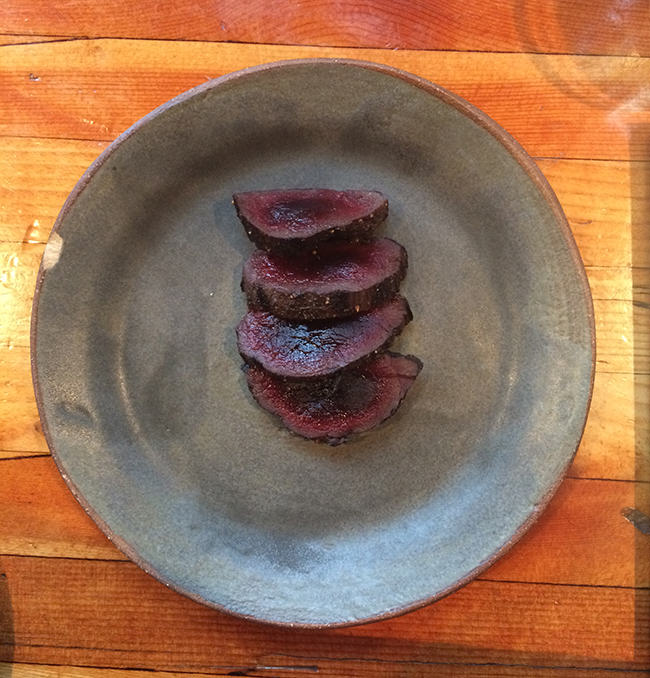
TAF: Do you think this is something you want to feature regularly?
EP: We are getting asked every single day whether we will keep it on our menu, and based on the response so far, absolutely. How we will keep it on the menu is yet to be determined. We are having guests ask for the loin in a larger portion - more than two ounces, more of a steak style. We might keep the pasta. We will sit down and evaluate that with the culinary team after Dine Out Vancouver and see what we want to do. Once the hunt is done and there is fresh seal meat, I can see us running a seal festival or an event around that.
TAF: I’ve frequently tried to find seal meat in restaurants across Canada and I have struggled to find it on menus. Have you had any feedback from other chefs, and do you think this might encourage them to put it on their menus?
EP: Absolutely. In the last week I have probably been contacted by five or six chefs, ranging from White Horse to Yellowknife to Calgary, and a few in Vancouver, all looking to get in contact with our providers. I can definitely see this starting to kick off. Someone had to be the one to jump in first, but I think we will start seeing other people adding it to the menus. We even had a fishmonger approach us if he could start carrying seal at his seafood store.
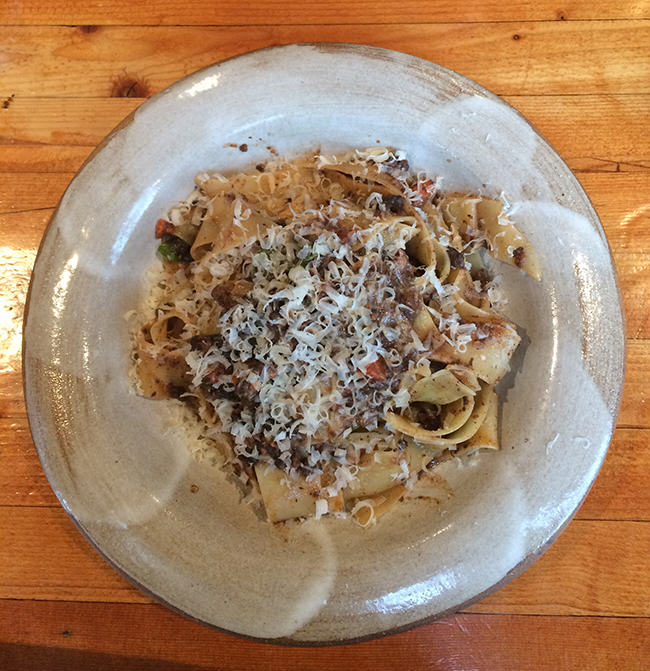
TAF: Throughout the dramas with the protesters, have you noticed how animal rights groups use the seal hunt as a money maker? Seals are abundant so there is no question about sustainability, and baby seals haven't been harvested since the '80s. What do you think of campaigners still using images of cute baby seals to raise funds?
SEE ALSO: EU SEALING POLICY IS HYPOCRITICAL, ANTI-DEMOCRATIC
EP: In all honesty, I don't know enough about that side of the industry. This was totally new to me, in terms of understanding a lot of the political ramifications and ties around it. Part of the reason I’m going to this seal festival, part of the reason I want to go out on the seal hunt this year, is to get a deeper understanding for myself personally. I had a couple of really good discussions both with the Humane Society and even PETA when they were protesting outside our restaurant the other day, we had a good chat and getting their take on things.
My job is to promote what Canada is, and I think one of the things that makes Canada so unique and special is that we are free to have a voice around things that are important to us, free speech, the ability to protest. I am not opposed to people doing what they are doing, though the cyber attacks were a little off mark, but I didn't have any issues with PETA showing up in front of our restaurant doing what they did. They have the right to do that. I hope to be far more educated by the summer with the hunt itself, really understanding it and all of the ramifications around it.
The Dine Out Vancouver event ends February 5th but keep en eye out for future seal meat specials at Edible Canada. And thank you to all the Truth About Fur followers who helped us get its rating back up on Facebook. Notorious seal-hunt opponent Paul Watson issued a call to his supporters to post poor (“1-star”) reviews, and 550 did just that, dropping Edible Canada’s average rating from 4.5 to 2.1 overnight. Truth About Fur and other responsible-use groups responded and within a week 5-star ratings caught up and pulled ahead. On the day of publishing this post, Edible Canada's average rating stands at 3.3. Check it out and post your review.








